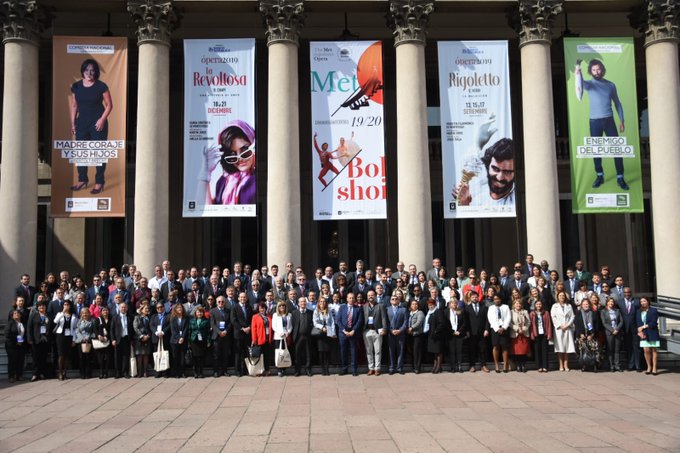The European Union joins three cooperation programs with Latin America and the Caribbean in the organization of the bi-regional Conference of Montevideo.

Conference of Montevideo.
Three regional European Union cooperation programmes (EUROsociAL+, COPOLAD II and EL PAcCTO) inaugurated a bi-regional conference on alternative measures to imprisonment, to reflect on the system of penalties and to provide different measures in lieu of incarceration. The conference was inaugurated in Montevideo.
The event was opened by Jorge de la Caballería, Head of the Unit of the Directorate-General for International Cooperation and Development of the European Commission. De la Caballería stressed that the participants to the meeting will “discuss and exchange experiences on issues relevant to Latin America and the Caribbean that affect and concern us all on both sides of the ocean”.
The region faces high levels of crime and the average rate of people in prisons is over 263 per 100,000 inhabitants. Moreover, the increasing use of pre-trial detentions accounts for more than 30% of the prison population; in some countries more than 70% of the inmates are incarcerated before their trials.
The chair went on to add that “…it is not just a question of offering a circumstantial solution to the problem of overcrowding in prisons, but of implementing alternatives to incarceration to provide better prospects for social rehabilitation and less recidivism”.
“We know that some sectors of the public opinion view are reluctant to consider the issue. However, we need to work to raise awareness among different actors and society as a whole. We must inform people about the consequences of increased incarceration rates, while explaining the benefits of using alternative measures, other than deprivation of liberty,” he added.
Ariel Cancela, Deputy Prosecutor Attorney of the Court, who was also present at the opening event, reflected on possible solutions applicable to offenders.
“A resolved criminal dispute can truly lead to social appeasement. Our country (Uruguay) has a high rate of people deprived of their liberty and the figure tends to rise, which indicates we need to look for alternatives,” he remarked.
For her part, Elena Martínez Rosso, Minister of the Supreme Court of Justice, was adamant to express that the Uruguayan society has not found a good solution to the problem of prisons or detainees. “The general population shows no concern for incarcerated people, even when they deem that security is the most important topic,” she pointed out.
Meanwhile, Andrea Vignolo, Executive Director of the Uruguayan Agency for International Cooperation (AUCI), emphasized the importance of having sound democratic institutions to progress towards compliance with all the international standards. “In Uruguay we can live together in peace and we can think about continuing to build our country into the future,” she said.
Other speakers, including Juan Manuel Santomé, director of EUROsociAL+, Juan Gama and Xavier Cousquer, directors of EL PAcCTO, and Claudia Liebers Gil, responsible for Institutional Relations and Strategy of COPOLAD II agreed on the importance of focusing on the inequalities that drive people to commit crimes, the fight against organized transnational crime, and the analysis and development of policies aimed to reducing the supply of and the demand for drugs.



